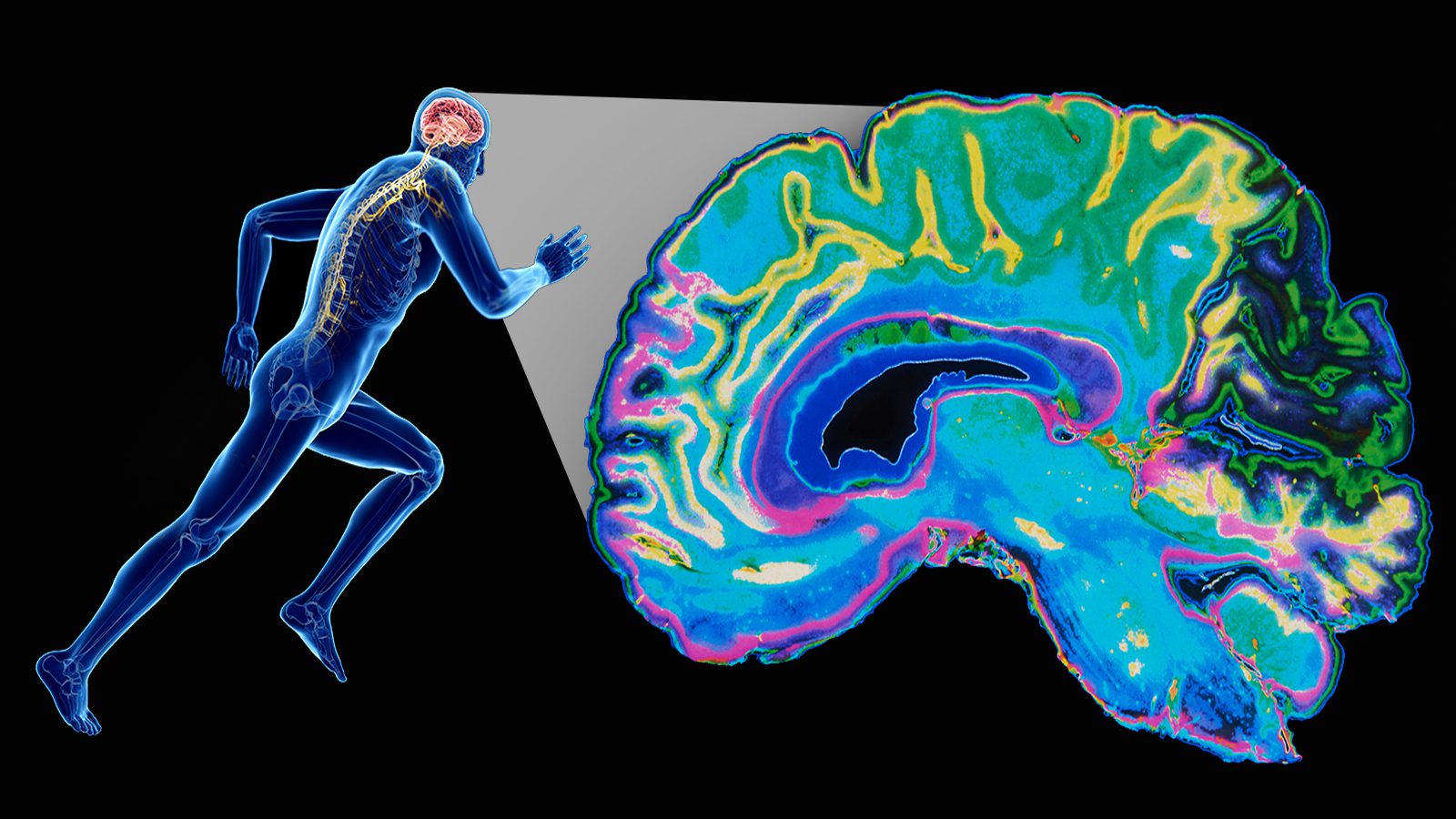Exercise has long been recognized for its numerous benefits to physical and brain health. Still, it is only in recent years that its positive impact on brain health has been thoroughly researched and documented. Like the rest of the body, the brain requires proper care and attention to maintain optimal functioning. Exercise is a key factor in promoting brain health and improving cognitive function. It even helps to reduce the risk of developing brain-related conditions such as dementia and depression.
Exercise benefits the physical body and the brain in numerous ways. Regular physical activity has been linked to improved cognitive function, including increased memory, attention, and processing speed. It has been associated with reduced stress levels and improved mood, which can lead to a better quality of life.
Exercise also has a positive impact on the body’s cardiovascular system. It can help reduce the risk of heart disease, stroke, and other related health conditions. There’s arguably nothing you can do to benefit you more than physical activity. Incorporating exercise into one’s daily routine is essential for maintaining good health.
Why Exercise is the Most Important Factor for Brain Health?
1. Boosts Brain Health by Increasing Brain-Derived Neurotrophic Factor (BDNF)
Brain-Derived Neurotrophic Factor (BDNF) is a protein that plays a crucial role in promoting the growth and survival of neurons in the brain. Exercise has been shown to increase the production of BDNF, which can lead to numerous benefits to brain health. BDNF is essential for forming and maintaining connections between neurons, known as synapses.
This process is vital for learning and memory, enabling the brain to create and strengthen new neural connections. By increasing the production of BDNF, exercise helps to improve the brain’s ability to learn, remember, and recall information. Studies have also shown that BDNF plays a role in neuroplasticity. This is the brain’s ability to change and adapt to new experiences. Exercise has been linked to increased neuroplasticity, which can lead to better cognitive function and improved mental health.
On the other hand, low levels of BDNF have been associated with depression and anxiety. So, by increasing BDNF through exercise, individuals may be able to reduce the symptoms of these conditions. In addition to its benefits to mental health, exercise has also been linked to improved brain function in aging adults. As people age, their levels of BDNF naturally decrease, which can lead to aging in the cognitive processes. Regular physical activity increases the production of BDNF and helps slow down the aging process in the brain.
2. Improves Cognitive Function
Exercise has been shown to positively impact cognitive function, including memory, attention, and processing speed. This makes exercise essential for maintaining a healthy brain and promoting overall brain health. One of how exercise improves cognitive function is by increasing blood flow to the brain.
The increased blood flow gives the brain essential nutrients and oxygen for healthy brain function. Exercise has also been shown to stimulate the growth of new brain cells, particularly in the hippocampus. That is an area of the brain responsible for learning and memory.
Studies have also shown that exercise can improve executive function, which is the ability to plan, prioritize, and complete tasks effectively. Executive function is essential for everyday activities. Improving it through exercise can lead to improved productivity and overall quality of life. Many types and intensities of exercise can help. But, as for the most beneficial, research suggests that aerobic and resistance training can positively impact.
3. Stimulates Neurogenesis
Neurogenesis is the growth and development of new neurons in the brain. As we age, this process is crucial for maintaining cognitive function, including memory, attention, and processing speed. As mentioned before, exercise is linked to increased in production of BDNF.
This is a crucial protein that plays a role in promoting neurogenesis. Exercise has also been linked to an increase in the number of neural stem cells in the hippocampus, an area of the brain that is crucial for learning and memory. This increased production of new neurons can help to improve cognitive function and protect against age-related cognitive decline. Chronic stress has been shown to decrease neurogenesis and impair cognitive function.
By reducing stress through exercise, individuals can promote neurogenesis and maintain healthy brain function. Exercise has improved the health and function of existing neurons, including forming new connections between neurons. This improved neural connectivity can improve communication between different brain areas and cognitive function.
4. Improves Brain Health by Decreasing Stress and Anxiety
Physical exercise is a powerful tool for reducing stress and anxiety levels because chronic stress and anxiety can harm physical and mental health. So, incorporating exercise into your daily routine can help to improve overall well-being. Physical activity has been shown to reduce cortisol levels, a hormone produced in response to stress. This can help to reduce stress levels. Exercise has also been linked to increased production of endorphins.
These neurotransmitters play a role in reducing pain and increasing feelings of happiness and well-being. Endorphins have a calming and stress-relieving effect, which can help to reduce anxiety levels. Exercise has been linked to improved brain function and cognitive ability, which can help to improve focus and reduce anxiety levels.
Physical activity can increase the prefrontal cortex size, an area of the brain associated with decision-making, attention, and executive function. The more developed this area is, the more you’ll be able to focus. Thus, you’ll be able to reduce symptoms of anxiety and depression. Exercise also has a positive impact on mood, which can help to reduce stress and anxiety levels. Regular physical activity has been linked to increased self-esteem and improved overall mental health.
5. Increases Brain Health by Improving Blood Flow
Increasing blood flow to the brain can positively impact brain health and function. Increased blood flow to the brain provides it with essential nutrients and oxygen. These nutrients are vital for optimal brain function and health. Physical activity has been linked to increased blood flow to the brain, which can help to improve brain function and cognitive ability.
During exercise, increased heart rate and blood flow can help to deliver more oxygen and nutrients to the brain. So, it provides the resources it needs to function at its best. In addition, exercise leads to the growth of new blood vessels in the brain. This can help to improve blood flow and provide additional support for brain function. This increased blood flow and new blood vessel growth can help improve brain function and cognitive ability.
It can even help reduce symptoms of anxiety and depression and improve overall mental health. Increased blood flow to the brain can help to support brain plasticity, allowing it to adapt and change in response to new experiences and information. This leads to the improvement of overall brain function and cognitive ability.
6. Reduces the Risk of Brain-Related Conditions
There are many brain-related conditions, such as dementia, Alzheimer’s disease, and stroke, that people need to be concerned with. But one of the things that help you reduce this risk is physical exercise. As mentioned, it has been linked to improved brain function, cognitive ability, and overall brain health.
All of these can help to reduce the risk of brain-related conditions. And studies confirm that regular exercise can improve brain function and reduce the risk of dementia and Alzheimer’s disease. Exercise has been shown to reduce the risk of stroke, which can lead to serious brain damage and disability. Physical activity has been linked to improved cardiovascular health, which can help reduce stroke risk.
As exercise leads to improved brain function, it can help to reduce the risk of stroke and improve overall brain health. Regular exercise can lower blood pressure, improve cholesterol levels, and reduce the risk of other cardiovascular conditions. All of these are factors that can reduce the risk of stroke. Plus, mental health is also a known risk factor for stroke. And, as discussed before, exercise can help you manage it.
7. Promotes Physical Health
Of course, exercise will mainly improve your physical health. But, by promoting physical health, it also helps promote brain health. Regular exercise can help strengthen muscles and bones, reducing the risk of injury and osteoporosis. Weight-bearing exercises, such as running and weightlifting, can help to build bone density and reduce the risk of bone fractures.
Exercise can improve your metabolism and promote weight loss. This can help to reduce the risk of obesity, diabetes, and other metabolic conditions. Physical activity has been linked to improved respiratory function, reducing the risk of respiratory conditions such as asthma and chronic obstructive pulmonary disease.
And lastly, it helps boost the immune system, helping to fight off infections and illnesses. All of these factors help you have a better, happier life. And, the healthier your body can be, the healthier your brain will be.
Final Thoughts on Why Exercise is the Most Important Factor for Brain Health
Exercise is one of, if not the most important, factors for brain health. Regular physical activity has a wide range of benefits for the brain. It helps improve cognitive function, increase neurogenesis and blood flow to the brain, reduce stress and anxiety, and reduce the risk of brain-related conditions. Physical activity also promotes physical health, which in turn has a direct impact on brain health.
Exercise benefits include improved cardiovascular health, stronger muscles and bones, better metabolism, a more robust immune system, improved respiratory function, and better mental health. And all of them can help to improve brain function and overall brain health. Exercise should be a priority for anyone looking to improve their brain health. Whether through a structured exercise program or daily physical activity, the benefits of exercise for the brain are numerous and well-established.
Even though you might find it tedious or complicated, you should try to be more active. You don’t even have to start going to the gym. Something as simple as taking daily walks can do the trick. Making exercise a regular part of your daily routine can help protect your brain health. And ultimately, you can improve your overall quality of life.

















 Community
Community

